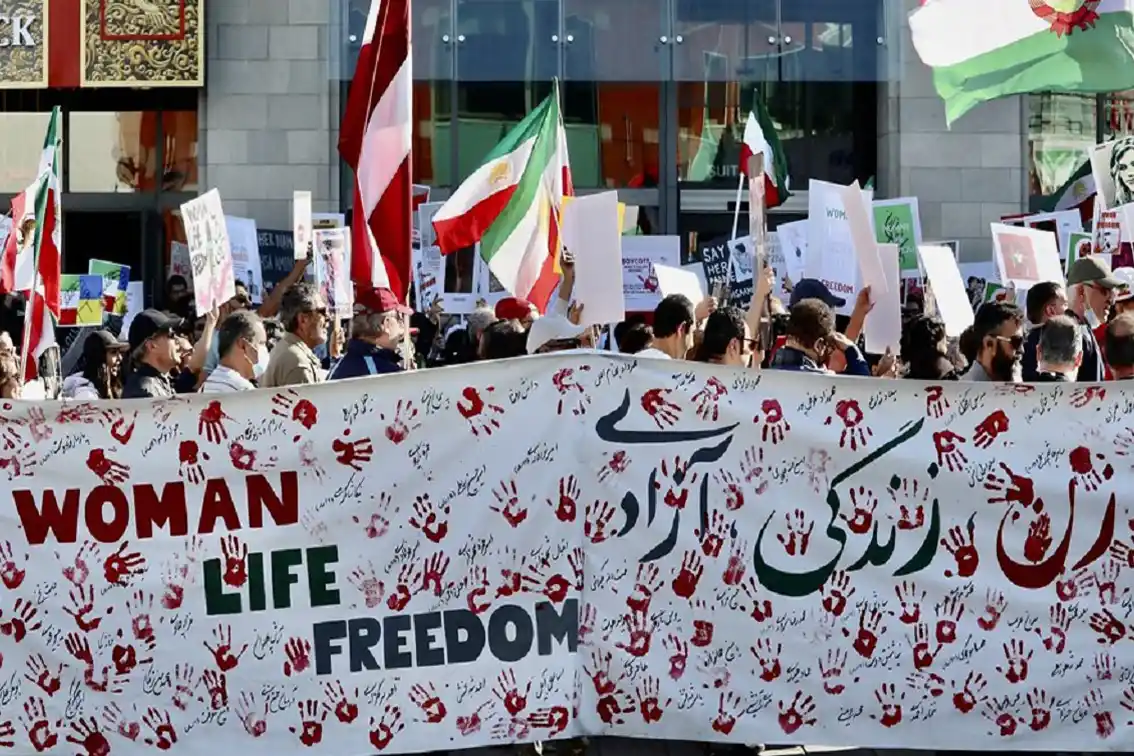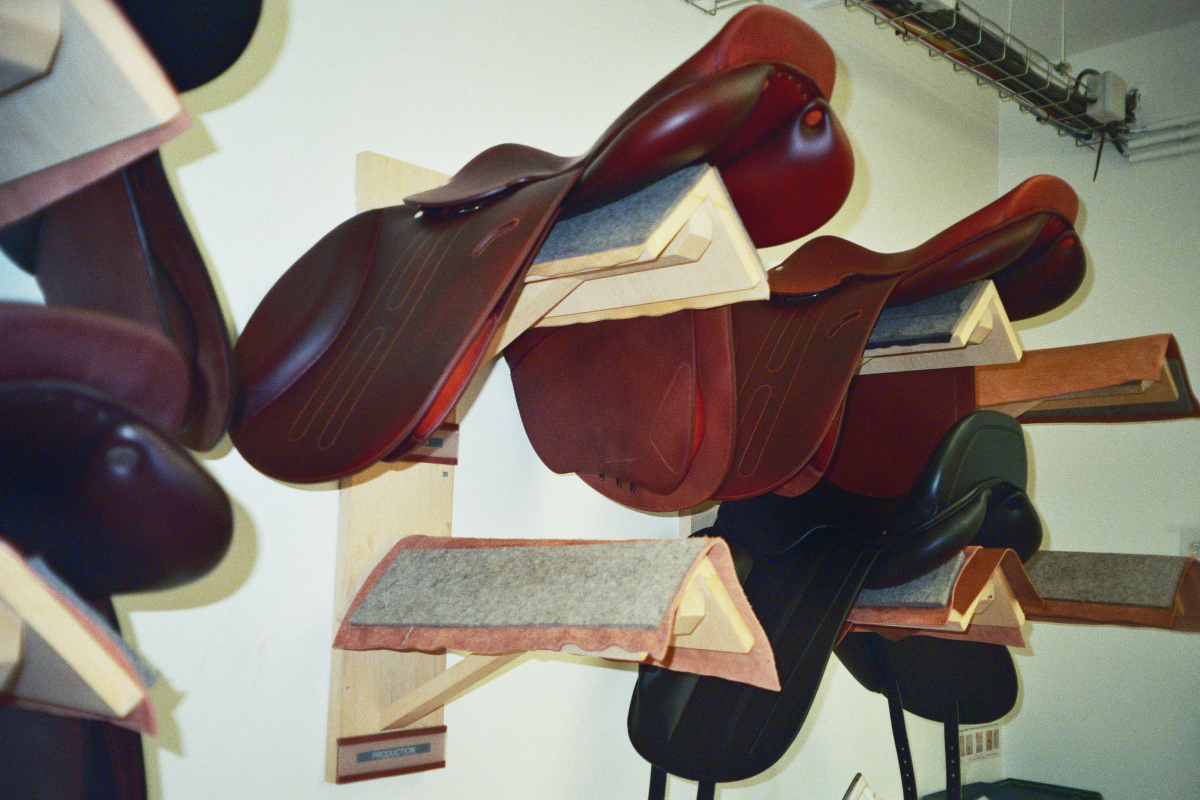To speak about your country when you can’t speak about your lover’s body. Before leaving Iran, Malakuti faced censorship as much as appreciation as a theater critic
A conversation with Bita Malakuti
If every woman could read one thing that would make her want to fight for her freedom – what would it be? While the news about Mahsa Amini’s death struck the media channels all around the globe, women in Iran had their final straw of abusive power. It takes one death to ask to be heard and seen. Hurtful News shares the same impact poetry reveals. It doesn’t affect you personally; it affects everybody personally.
Writer, poet, and journalist Bita Malakuti speaks of the ongoing revolution taking place in Iran. She subverts Islam’s abusive governance while creating shelter through literature. Born in Tehran, the Iranian capital, her writings become witness to regime change and aggression, to Iranian art and culture, the mixture of a glorified villain and inspiring voices – both coexisting in the shredded space of a country.
Bita Malakuti on journalism in Iran
Bita’s name recalls an Iranian New Wave movie before the Islamic Revolution of 1979 that erupted when she was only five. Uncoincidentally, Malakuti went to study dramaturgy and art in Tehran, shortly starting to work as a journalist and theater critic in Iran.
«Writing for me has always been a cure for my suffering and rage about bylaws I would feel inside, both mentally and emotionally». To unveil the truths and heavy realities averting her county Bita became a foreign correspondent for different media channels. As a journalist, she continued to stay close to the intrinsic Iranian culture while globally raising awareness of the living conditions in her home country.
Poems of a tormented country: Bita Malakuti
«It was avant-garde, and even now, I cannot read them», says Bita when remembering her first published work, a short collection of poetry titled Christ and Whispers of Shahnameh Daughter (1999). Only 25 at the time, she would release Empty Coffin, her first short story volume, only a few years later, in 2003. Her first biographic work on the life of actress and director Soosan Taslimi came out in 2005 under the title The Myth of Kindness.
Some of her works were issued in Iran, others in the United States, where she first left in 2006, or in Switzerland and the Czech Republic. Drawn to literature from a young age, Bita would use it as a cure to pull away the haze of loneliness. Her parents were both literature teachers (for middle school and high school) – her house was filled with books, it would sprawl with poems, novels, and plays. «The books were one of the most interesting things in our house» the writer remembers.
Bita Malakuti’s poems: Seven Emails to my homeland and Border
In her poetry, Bita unpacks themes of abuse, womanhood, freedom, and war. She intertwines the collective distress with her experience as a woman, wife, and mother simultaneously affected by desire, fear, and nourishment. In Seven Emails to my homeland (2013), Bita depicts these sorrows. «four/no/i cant compact this much of being forty in this city/when i have not still walked with red high heels/on the horns of the sun/when i haven’t kissed a stranger in the depth of Gheytarieh street/when my Wedding Dresses/was just a green coat/and i have wore some meters of katrina typhoon/as my wedding veil/and have chewed/a dozen beheaded heads/on the other side of atlantic/instead of chocolate cake».
In 2014, the Iranian writer dedicates the poem titled Border to her son for Nowruz Eve (The Persian New Year’s Eve). It becomes a nostalgic yet forceful declaration of love, a way of tracing the identity of her new family beyond the borders of a country. «We have no homeland/Instead we have two wooden horses /To spring over the nightmares/My son, your hometown is not Teheran/But the beginning of the wind».
Writing under dictatorship in Iran
Tehran hasn’t always been as caged and wounded as it appears today. Bita remembers her hometown as an oasis of beauty, with gardens and big villas governed by harmony. She grasps the memory of the revolution as a culmination point, bottling up all the harm brought through armed conflict. Destroyed houses, and a falling economy, but the first compulsory law to be imposed by the dictators was the dress code for women, having to wear the traditional hijab all over their hair. «When they originally asked what to wear, it meant they’re going to ask what to do, or what not to do».
Censorship of Your Teheran Body, Bita Malakuti
Bita reflects on the dictatorship’s focus on women, «they can feel if they cannot control the women, they cannot control anything». With her work, she received recognition in her country both from men and women. Bita used her voice to portray the idea of a free woman, like in her novel My Name is Layla, or in poems like Sommer Dreams. «I am a woman/Descending from young meadows/With lips open from weirdness/With breasts white from a heap of happy clouds/My passion arises from recurring love making/Without any news/Without any revolution /Without any bullets». However, with her loud will to empower women, Bita countered oppression in freely expressing some concepts.
One of her poems published in Iran was censored by the Minister. The parts where the writer described Tehran as a lover’s body, only eluding to reference body parts, were completely erased from the text. Years later, in 2021, Bita republished the complete writing of Your Tehran Body in Sweden. «I try to be the voice of all this lack of freedom in Iran and all the pressure», she explains.
The distorted memories of Istanbul by Bita Malakuti
Bita Malakuti left Iran in 2006 when she moved to the United States for a short period of time before meeting her husband. Together they moved to Prague, Czech Republic where she started writing as a foreign correspondent for a Farsi Radio station.
In the fourteen years, Bita lived there, she confesses to feeling like «living in your island», without the anchor of belonging. Cultural and linguistic barriers aside, when she decided to part ways with her hometown, Bita had to abandon her status and the job she loved for freedom and safety. As a theater critic in Tehran, she would be immersed in a world all hers. «My last sorrowful feeling was when I saw a play for the last time in the City Theater».
Talking about the Polish play presented for a festival, Bita contours the atmosphere and connection she shared with her profession back home. Some of her poems confess to the same lingering nostalgia, to all the times she felt at home in the City Theater. «Come with me (…)/So that I get younger, /Twenty /Or thirty years old/While playing the role of Ophelia /On the dark stages of City Theatre» (from The distorted memories of Istanbul). Now living in The United States, where she moved with her family around six months ago, Bita says she feels at home. She continues to write and promote Iranian culture, fostering a virtual community.
Women’s protests in Iran after Mahsa Amini’s death
The Iranian protests started shortly after Mahsa Amini’s death at the end of September last year. The manifestations went on for over six months up until present days, involving women all around the world, manifesting their revolt and grief. The gesture of cutting their hair, dancing in the streets, refusing to wear the traditional hijab, all revealed the collective need for liberation. Mahsa Amini was a twenty-two years old student of Kurdish origins who was arrested for not correspondingly wearing the hijab all over her hair.
While in the police station, she went into a three day coma, eventually dying with visible marks of aggression over her face and body. Highly impacted by the events, the women of Iran started a revolution, risking their lives in the streets, going out knowing they could lose everything at the price of liberty in the glimpse of an eye. Bita Malakuti addresses the ongoing protests confessing how proud she is of the new generation and their lack of fear to go in front of the state’s forces and liberate their voice, face, and bodies of restriction.
You can see Iranian women leaving their homes without the hijab and traditional cloth, dressed as any free citizen. The Islamic regime is arresting thousands of people every day. They’re often raped or tortured, shoot in the eyes. Then there’s Afghanistan’s Taliban way of torturing women and children with chemical attacks happening in schools every day, a constant state of fear and danger. «It takes time. We cannot see major changes yet, but we can see little changes from people that cannot return to the past».
Attempting solidarity. The feminist dilemma
We talk about protests and manifestations in a country where women don’t have access to elementary human rights. They are forbidden to choose their clothing or their jobs. Somehow the new feminism wave doesn’t always take account of these discrepancies. Because «in Islamic law, women are considered half men» they are the first to be oppressed by the regime by having all their power taken away.
With some of her poems, Bita contours the image of these women, hinting towards their obstructed sexuality or forbidden romanticism. In Two red lines, the Iranian poet explicitly voices these perceptions «sir!/i am scared of you /you who sit between the shame of the fingertips/and the salty sin of a short skirt». Sitting on the threshold of fear and arousal, the lyrics of The Empty Chair (2011) have the same revelatory impact «Like the fantasy of/breaking the hymen of the bride/Which turns /In the erected mouths of the guests /On a tray of beheaded partridges».
Social media and women around the world: Bita Malakuti’s perspective
Women started to cut their hair, and posted videos showing their solidarity with the Iranian people. But is that enough to stir up the conversation on the overlapping gap between women’s place in their cultures? Bita’s references to hair arise in The Burn Marks of the Night «I knew nothing /About the gloomy tresses of the girl,/Who planted the moons, /From Bisotun to Boston».
The writer believes social media gives her access to more people that can discover the truth through her words and come closer to Iranian culture as much as Iranian people can find shelter and a partner in their everyday reality. To this day Bita Malakuti expresses how important the state’s relationship with Iran became in this revolution. The people represent the voice of each territory, they have the power to protest and speak up without requesting violence or damaging human lives.
«The best thing is to cut off the relationship with the regime and be the voice of us, the voice of the Iranian women, to hear this voice and echo it. Cut off the relationship, don’t invite them to the countries in the European Union and ask them to speak about human rights» (In reference to Foreign Iranian Minister, Hossein Amir-Abdollahian Hon being invited to Belgium to speak about human rights).
Bita Malakuti
Bita Malakuti was born in 1973 in Tehran. She studied Drama at Azad Art University of Tehran. She started taking writing seriously by the age of 20 and poems and short stories were getting published in different magazines before the age of 25. She has written and published extensively as a theater and drama critic for several years. She has so far published eight books, including three collections of short stories, three poetry, one novella and one reference book on the professional life of the renowned Iranian actress Soosan Taslimi. She left Iran for the United States in 2006. Now she is living in Prague, Czech Republic.



















